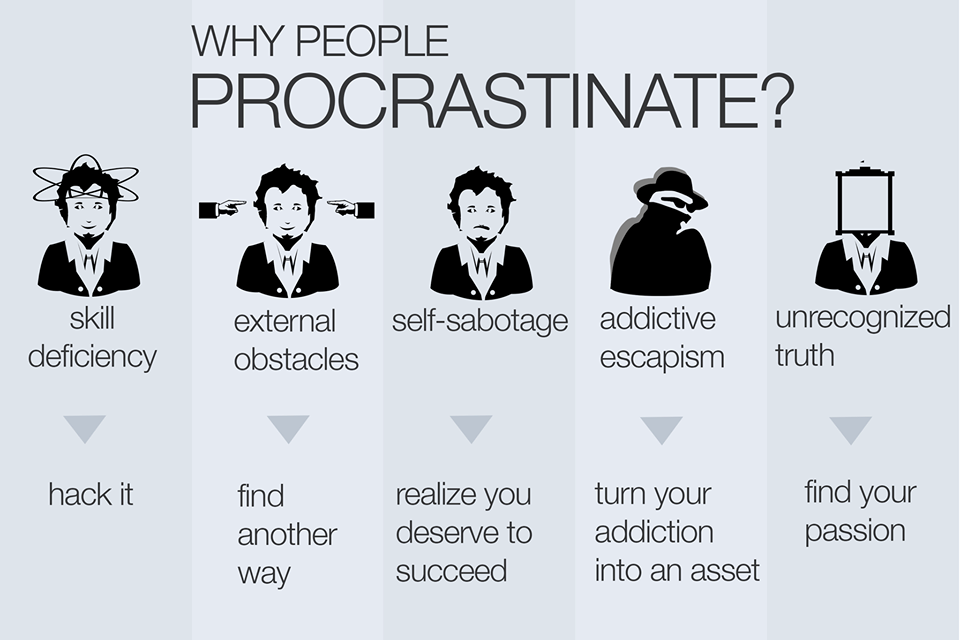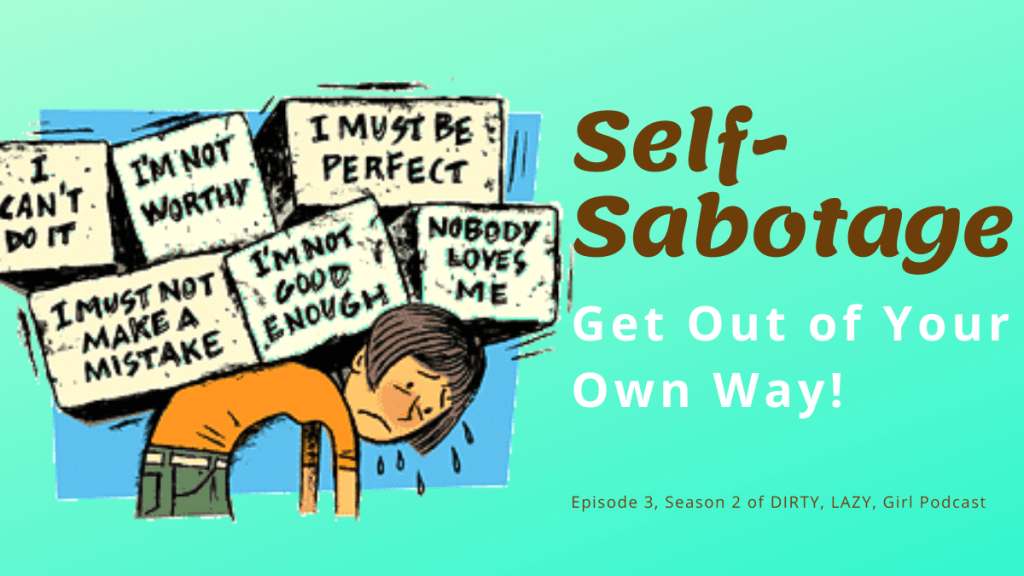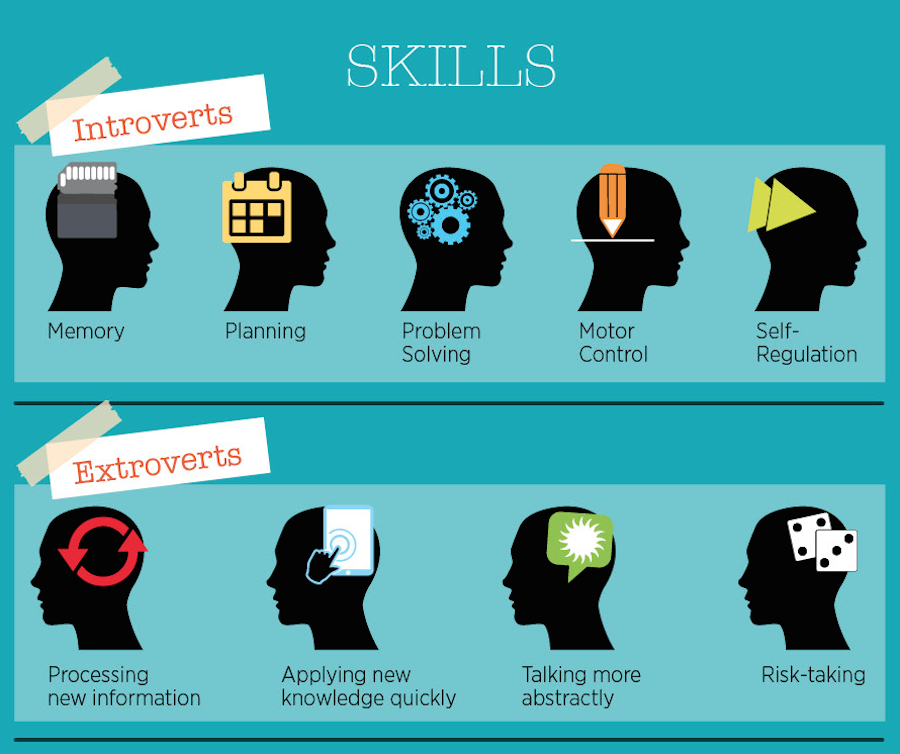How do i stop self sabotage
5 steps to change your behavior
Jump to section
What is self-sabotage?
Identifying self-sabotage
The psychological impact of self-sabotage
How to stop sabotaging yourself
If you’re reading this article, chances are it’s for one of two reasons. Either you have a sneaking suspicion that you’re getting in your own way, or someone has pointed out a pattern of behavior that you don’t particularly like.
No one wants to admit that we sabotage ourselves, but we all do it to some degree. Everyone has done things that took them out of step with a goal that they’re trying to achieve or behavior that they want to change. That’s okay — when we’re aware of it.
When we’re not aware of our self-sabotaging behaviors, life can seem impossible. We can feel like we’re playing a game where we don’t understand all the rules. It may seem like we’ll never achieve the goals we want or live the kind of life we want to have.
When you’re trying to create a change in your life, it’s helpful to look at what you can control, rather than what you can’t. Fortunately, your behavior is something that you can change. Learn how to identify unhelpful patterns and how to stop self-sabotaging in this article.
What is self-sabotage?
The term sabotage means to deliberately damage, block, or impair something so that it doesn’t work as intended. Even though we rarely block ourselves deliberately from getting what we want, we still might do or say things to get in our own way. To others, it can even seem deliberate.
What does it mean to self-sabotage?
Self-sabotage is when people do (or don’t do) things that block their success or prevent them from accomplishing their goals. It can happen consciously or unconsciously. Self-sabotaging behaviors can affect our personal and professional success, as well as our mental health.
Although we usually talk about self-sabotaging behavior, it’s also possible to have self-sabotaging mindsets and patterns. Becoming aware of what causes self-sabotage is key to breaking these patterns.
What causes self-sabotaging behavior?
In the book Stop Self Sabotage, Dr. Judy Ho explains self-destructive behavior as a biological response. We get a boost in dopamine (the feel-good neurotransmitter) by setting goals. But when it’s time to complete them, the fear of failure triggers avoidant behavior. In order to avoid the “threat,” we subconsciously start to shy away from our goals. This is called the approach-avoidance conflict.
Self-sabotaging happens when there’s a mismatch between our values and our behavior. It’s most likely when we have to either do something that doesn’t align with what we really want. Conversely, it might be that we know what we want but do something that doesn’t help us get there.
Let’s look at a couple of examples:
Example A
Your doctor tells you that you should start an exercise program. That’s great, but you hate going to the gym. Knowing this, you sign up for a gym membership and sessions with a trainer, figuring the extra accountability will keep you motivated. On the first day of training, you arrive at the gym twenty minutes late — and without your sneakers.
On the first day of training, you arrive at the gym twenty minutes late — and without your sneakers.
Example B
You’re often late to work, so you make a plan to start waking up at 6:00 am. That evening, you stay up watching TV after dinner. You rationalize that whatever you haven’t finished can get done in the morning. Unfortunately, you oversleep. Waking up late throws off the rest of your day. You’re so groggy, you think “See? I’m just not a morning person.”
In each of these examples, our behaviors are out of alignment with what we say we want to see happen. When this kind of mismatch occurs, we have to either change our behaviors or develop greater self-awareness.
Self-sabotaging behaviors are also linked to cognitive dissonance — the psychological discomfort associated with internal contradictions. When we try to make ourselves do something that isn’t in line with our beliefs or values, we feel out of balance.
Subconsciously, we often try to restore this balance by changing our behavior (or creating circumstances, no matter how sneaky, that let us off the hook).
Identifying self-sabotage
There are many different patterns associated with self-sabotage. One of the most essential steps in identifying self-sabotaging behavior is to develop self-awareness. Self-awareness, or introspection, is critical to noticing unhelpful patterns of behavior and strengthening the ability to stop them in their tracks.
A helpful way to begin identifying forms of self-sabotage is to frame your situation using the following sentence:
“I want to achieve (goal), but I keep doing (behavior).”
For example, I might say “I want to get a passport, but I keep missing the appointment.”
Now that I’ve identified the behavior and how I keep blocking it, I can start to look for other areas where that behavior might show up. For example, I might realize that I often miss doctor's appointments as well, or never put passport appointments on my calendar.
Once you start asking yourself these questions, you’ll start to notice your patterns (and they might arise in more than one area of your life). Here are some of the most common patterns of self-defeating behavior:
Here are some of the most common patterns of self-defeating behavior:
1. Perfectionism
Striving to be perfect might sound like a good thing, but it often gets in the way of being effective. Perfectionists often struggle with getting started on projects — and when they do get started, obsession with the details keeps them from finishing.
Perfectionists also tend towards all-or-nothing thinking. They tend to be especially harsh on themselves and talk themselves out of potential opportunities before they even get started.
2. Moderation
People who struggle with moderation often have difficulty setting boundaries. This behavior might look like people-pleasing (which causes them to say “yes” to too many things. Or it might be a lack of moderation in other areas of their lives, like one too many drinks on a night out.
There are other, more subtle ways of “overdoing it,” like staying up all night watching TV or working out to exhaustion at the gym. Although overcommitting can look like a strong drive to achieve, it often masks an underlying fear of success.
3. Running on empty
Have you ever heard the fable about the goose that laid the golden egg? The owner was tired of only getting one egg per day, so they cut the goose open to get them all (it didn’t work out that well). Neglecting your personal needs to try and get more done isn’t just shortsighted — it’s a sneaky sign of self-sabotage.
4. Procrastination
Everyone’s guilty of procrastinating now and again, especially when it’s a project they don’t really want to do. But putting off your responsibilities can actually indicate a lack of self-confidence. When you procrastinate, you prevent yourself from having the time and the resources you need to do your best work.
Procrastination often goes hand in hand with perfectionism. Perfectionists will often delay starting a project if they feel they can’t do it perfectly.
5. Lack of communication
You know you need help on a project, but you don’t reach out. You’re running late, but decide not to send a text.
Communication is a regular part of our lives, both in and out of the workplace. When we resist communicating, it’s often due to self-criticism. We worry that by asking for help, we’re highlighting our failures.
Unfortunately, the lack of communication can be damaging to our relationships. Even worse, it can create fertile ground for impostor syndrome. Because no one knows what you’re dealing with, you live in fear of being “found out.”
Symptoms of self-sabotage
The signs of self-sabotage can be very subtle. Here are some common ways people self-sabotage — both at work and elsewhere:
- Refusing to ask for help
- Controlling or micromanaging behavior
- Picking fights or starting conflicts with colleagues and loved ones
- Setting goals that are too low or too high
- Avoiding or withdrawing from others
- Negative self-talk and extreme self-criticism
- Making excuses or blameshifting
- Undermining your goals and values
- Substance abuse, overspending, or “overdoing it” in other ways
- Constantly seeking approval
- Reluctance to speak up for yourself
The psychological impact of self-sabotage
When we’re not aware of our negative thought patterns and how they affect our behavior, self-sabotage can run our daily lives. We might feel hopeless about the future or achieving our goals. We may think that there’s something wrong with us and that we’re just not capable of success.
We might feel hopeless about the future or achieving our goals. We may think that there’s something wrong with us and that we’re just not capable of success.
When this happens, these negative behaviors can become ingrained. They can amplify our insecurities. Self-sabotaging behaviors drain our motivation, enthusiasm, and self-esteem. Because the evidence of our “failures” starts to pile up, we no longer think we’re good enough.
This self-doubt begins to perpetuate a cycle. When we’re (inevitably) pushed to do something outside of our comfort zones, we panic. Those uncomfortable feelings and scared inner voices lead us to act against our own best interests. And when it causes us to burn a bridge that really matters to us, it’s heartbreaking.
How to stop sabotaging yourself
Learning to recognize and stop self-sabotaging behavior can help us rebuild our self-image. Here are 5 ways to stop self-sabotaging:
5 ways to stop self-sabotaging
- Develop self-awareness
- Write it out
- Create a plan — and do it
- Practice mindfulness
- Communicate
1.
 Develop self-awareness
Develop self-awarenessWhat does self-sabotage look like for you? Do you wait until the last minute to start projects? Do you pick fights with others or run away from challenges?
Start your inquiry with the sentence we framed earlier: “I want to achieve (goal), but I keep doing (behavior).” Once you have identified the goal and the behavior that’s “blocking” it, you can start to understand what the negative behavior is actually telling you.
In many cases, self-destructive behavior is rooted in anxiety. Our anxious behaviors can cause us to avoid doing what we need to do to reach our goals. In this case, we’re not avoiding the goal: just the perceived negative consequences of it. That includes the negative emotions we associate with it.
Sound complicated? Let’s look at my example from earlier.
“I want to get a passport, but I keep missing the appointment.”
Digging a little deeper can help us pinpoint what the negative feelings are trying to say. What happens? Well, I say I want to get the passport, but I never put the appointment on my calendar. That’s a good place to start. Why wouldn’t I put an important appointment on my schedule?
That’s a good place to start. Why wouldn’t I put an important appointment on my schedule?
Paying attention to this behavior might help me notice that when I make the appointment, I follow it by doing something counterproductive. Paying attention to my inner voice, I hear myself say “There’s no point in getting a passport, you’ll never get time off to go anywhere. Besides, it’s too expensive.”
This is just an example. But if we slow down the loop, we often find that there’s a sneaky thought that happens between making progress and the unproductive action. In this case, it’s my fear that I won’t have the money or time to travel. Instead of addressing that, I just avoid getting the passport.
2. Write it out
If you’re having trouble identifying your patterns, start by keeping a journal. As you continue to write about your goals, you may start to notice yourself complaining about the same things over and over. Share these thoughts with a coach or therapist. They may be able to help you find ways to overcome them.
Sometimes, self-sabotaging behavior is a result of past or childhood trauma. We might develop survival strategies that keep us from further harm. Unfortunately, when these strategies outlive their usefulness, it becomes difficult to break them. Working with a therapist can help you resolve the underlying emotional pain.
3. Create a plan — and do it
When you pinpoint the behavior patterns you want to break, create a plan for how you’ll address them. For example, if you know that your self-sabotaging thoughts sneak up before you put an appointment on the calendar, decide to put it on anyway. You can make it a personal rule for yourself: “All of my appointments go on my schedule, no matter what.”
By making it a personal rule, you allow the power of habit to take over. This increases the chances that you’ll actually make it to the appointment. But it also gives you a chance to see what else might be in the way for you emotionally.
Taking action is a critical step, since procrastination is often a cornerstone of self-defeating behaviors. Once you start taking action, you build momentum towards your goals. This helps you reduce fear and (re)build your sense of self-worth.
Once you start taking action, you build momentum towards your goals. This helps you reduce fear and (re)build your sense of self-worth.
If you need help getting started, talking to a coach or mentor can provide accountability and support. It can also help you stay energized when making small changes. Perfectionists tend to hate incremental progress, but it’s the surest way to make a change.
4. Practice mindfulness
Self-defeating behavior patterns are often painful to break. They may be coping mechanisms to help you deal with past traumas. Or they may have prevented you from achieving goals that meant a lot to you. Once you start unpacking them, you may see the impact of these patterns on your professional, personal, and romantic relationships.
It’s important to learn to sit with these difficult feelings and be gentle with yourself as they come up. Practicing mindful breathing and meditation is a great idea. Not only can it help you develop self-compassion, but it can help you break down the patterns faster. Breathwork strengthens your ability to stay present, which will help you notice when your inner critic pipes up.
Breathwork strengthens your ability to stay present, which will help you notice when your inner critic pipes up.
You can support this growth by doing Inner Work®, working with a coach, or listening to mental health podcasts.
5. Communicate
In some ways, the last step is both the simplest and the scariest. People who self-sabotage will — paradoxically — do just about anything to avoid drawing attention to their insecurities. Telling people what you’re afraid of might seem like jumping out of the pan and into the fire.
But communicating (even if it’s only a little bit of your mental health journey) can have several benefits. For one, voicing a fear often makes it seem less frightening. For another, sharing your goals helps to build accountability and support.
If your group of friends is anything like mine, telling them that you want to get a passport is bound to generate excitement. Even if you don’t tell them that you’re worried about time or money, you’ll get flooded with cheap weekend getaways. Sometimes, creating a new emotional context for ourselves is just what we need to move forward.
Sometimes, creating a new emotional context for ourselves is just what we need to move forward.
How to stop self-sabotaging at work
Self-sabotaging at work can take many forms. This might include procrastinating, workplace conflicts, or underperforming. Here are some ideas to limit the impact of self-defeating habits at work.
1. Talk to your manager
Ask for feedback and specific areas where you can improve. If you’re struggling with expectations, be honest.
2. Communicate
If you’re concerned about falling behind, speak up. If you need more support, speak up. Whatever it is, staying in communication can help you focus on what needs to be done. The more you speak up, the less scary it will seem.
3. Take a chance
When self-sabotage starts to affect your performance, it can cause low self-esteem. Our self-image, in turn, affects our self-efficacy and whether we feel we can successfully take on new challenges. If there’s an opportunity you want to pursue, don’t let your inner critic talk you out of it. Ask for support as you go for what you want.
Ask for support as you go for what you want.
How to stop self-sabotaging relationships
When we feel unworthy of love and intimacy, we often (unconsciously) push our loved ones away. Uncovering these habits is difficult, but necessary if we want to have positive personal relationships.
1. Put values first
Picking fights, acting out, and lying are common ways that people sabotage personal relationships. We’re less likely to engage in these behaviors when we’re aware of how they conflict with our values.
2. Watch out for red flags
When we have a history of trauma, we can find ourselves reliving the same patterns again and again. This happens sometimes even when we’re consciously trying to avoid it. Learning to recognize red flags in a relationship can signal that it’s time to get support.
3. Work on you
One of the traps of personal relationships is that, well — they’re personal. They can help us grow. But they can also pick at our deepest insecurities unlike anything else can. Continuing to care for your own physical and emotional well-being is important as you strive to understand your own patterns.
Continuing to care for your own physical and emotional well-being is important as you strive to understand your own patterns.
Final thoughts
As you learn more about the different types of self-sabotage (and how they show up), be gentle with yourself. Remember that trying to change too much at once is classic self-defeating behavior.
Working with a coach or mental health professional can be very helpful. It can provide support and accountability as you learn how to stop self-sabotaging and move forward.
Self-Sabotaging: Why We Do It & 8 Ways to Stop
Skip to contentPublished: May 31, 2021 Updated: June 29, 2022
Published: 05/31/2021 Updated: 06/29/2022
Self-sabotage refers to beliefs and behaviors that prevent us from achieving our goals, hopes, and dreams. It is a very normal part of the human experience, something we all do from time to time—often without fully realizing we’re doing it. Fortunately, knowing the types of self-sabotage, where it comes from, and some helpful tips to neutralize it can help you overcome a fierce inner critic.
Breaking the pattern of self-sabotage is within your power, but it’s not something you need to do alone. BetterHelp has over 20,000 licensed therapists who provide convenient and affordable online therapy. BetterHelp starts at $60 per week. Complete a brief questionnaire and get matched with the right therapist for you.
Choosing Therapy partners with leading mental health companies and is compensated for referrals by BetterHelp
Visit BetterHelp
What Is Self-Sabotage?
At its core, self-sabotage involves any attitude or behavior that doesn’t match up your values and interferes with your ability to achieve your life goals.1,2,3 We all do things from time to time that get in the way of our progress, but self-sabotage is a pattern of thoughts and actions that creates ongoing problems, preventing you from moving forward and facing change successfully.4
When people self-sabotage, they regularly engage in self-defeating behaviors like procrastination, perfectionism, negative self-talk, avoidance, or conflict. Often driven by anxiety, fear, and self-doubt, they undermine their efforts to build the life they want. Self-sabotage becomes especially problematic when the behavior becomes a habit, done so automatically that you don’t even fully realize you’re doing it or that it is leading directly to negative consequences.5
Often driven by anxiety, fear, and self-doubt, they undermine their efforts to build the life they want. Self-sabotage becomes especially problematic when the behavior becomes a habit, done so automatically that you don’t even fully realize you’re doing it or that it is leading directly to negative consequences.5
People often don’t even realize that they are self-sabotaging, but upon closer inspection, it can look like avoidance, conflict creation, and controlling behavior. Once you recognize all the signs of self-sabotage, you can begin to change them.
Eleven signs of self-sabotage include a pattern of these behaviors:
- Avoiding people and situations that make you uncomfortable
- Staying within your comfort zone and avoiding change
- Setting goals that are too low to ensure success
- Creating conflict with romantic partners, loved ones, friends, or coworkers
- Trying to control others
- Attempting to gain others’ approval
- Making excuses
- Taking actions that don’t match your values and goals
- Comparing yourself to others
- Social withdrawal or isolation
- Risky behaviors (such as substance use, gambling, overspending, or promiscuity)
Breaking the pattern of self-sabotage is within your power, but it’s not something you need to do alone. BetterHelp has over 20,000 licensed therapists who provide convenient and affordable online therapy. BetterHelp starts at $60 per week. Complete a brief questionnaire and get matched with the right therapist for you.
BetterHelp has over 20,000 licensed therapists who provide convenient and affordable online therapy. BetterHelp starts at $60 per week. Complete a brief questionnaire and get matched with the right therapist for you.
Choosing Therapy partners with leading mental health companies and is compensated for referrals by BetterHelp
Visit BetterHelp
How Self-Sabotaging Behavior Impacts Your Life
Self-sabotaging behavior disrupts your progress toward achieving your goals and can prevent you from living a life you truly value. Some people get in the way of their own happiness and success in one particular area, while others impede themselves in several different areas. Common life realms that fall prey to self-sabotage include romantic relationships, career, education, and relationships with family and friends.
Here are four ways that self-sabotaging can impact your life:
1. Self-Sabotaging Your Romantic Relationships
Sometimes people do things that undermine long-term romantic relationships, engaging in behaviors that ultimately lead to a break-up. Often born out of fear of loss, romantic self-sabotage can involve blaming, picking fights, giving the silent treatment, controlling or monitoring a partner’s behavior, constantly seeking reassurance, clinginess, having impossibly high standards, and leaving relationships before they have a chance to develop.4,6,7
Often born out of fear of loss, romantic self-sabotage can involve blaming, picking fights, giving the silent treatment, controlling or monitoring a partner’s behavior, constantly seeking reassurance, clinginess, having impossibly high standards, and leaving relationships before they have a chance to develop.4,6,7
2. Self-Sabotaging Your Career
Self-sabotaging your career involves actions that prevent you from achieving your career goals. Fear of failure or anxiety about uncertainty can trap you in your comfort zone and prevent you from advancing despite a desire to do so.8 This leads to unhappiness at work that negatively affects mental health and well-being. It can also lead someone to frequently change jobs.
3. Self-Sabotaging Your Education
Educational self-sabotage can be intentional or unintentional. Often driven by anxiety and/or a lack of self-confidence, it involves behaviors that explain why a student is failing or generally performing poorly. 9 When failure can be blamed on actions like procrastination or purposefully not trying, it’s a reflection of choice rather than an inherent lack of ability.
9 When failure can be blamed on actions like procrastination or purposefully not trying, it’s a reflection of choice rather than an inherent lack of ability.
4. Self-Sabotaging Your Relationships With Friends & Family
This type of self-sabotage is often driven by a sense of competition that comes from a need to prove your worth, equality, or superiority.4 Actions also stem from trying to control others or win their approval.10 Negative behavior that interferes with positive relationships with loved ones might involve passive-aggressive behavior, clinginess, false compliments, approval-seeking, boasting, constant explaining, or frequent check-ins to see if others are angry or otherwise upset with you.
Types of Self-Sabotage
There are different types of self-sabotage, including procrastination, perfectionism, self-criticism, resisting change, and poor self-care. Ultimately, it’s a very common human behavior—but like humans, it has variations. Whatever form your self-sabotage takes, it is possible to overcome the behaviors that are preventing you from achieving your life goals.
Whatever form your self-sabotage takes, it is possible to overcome the behaviors that are preventing you from achieving your life goals.
Here are five types of self-sabotage:
1. Procrastination
Procrastination involves stalling rather than immediately diving into a project.3,8 Delaying action and engaging in distractions helps people avoid stress, anxiety, or otherwise emotionally uncomfortable situations, even though they might ultimately lead to growth.1 Learning how to overcome procrastination can help stop this form of self-sabotage.
2. Perfectionism
Perfectionism is a need for everything to be completely perfect, and it can be self-defeating.11 An intense sense of perfectionism prevents people from advancing in their career or enjoying satisfying, long-term relationships because it sets an impossibly high standard.3,8 Perfectionism at work or school can prevent people from taking necessary risks or even completing projects. Thankfully, there are ways to overcome perfectionism.
Thankfully, there are ways to overcome perfectionism.
3. Self-Criticism
Negative self-talk and harsh self-criticism can affect our actions and prevent us from meeting our goals.5 It’s frequently automatic, running through our minds unchecked as an instant reaction to ourselves, others, and the situations we encounter every day. Listening to harsh self-criticism is a form of self-sabotage because doing so prevents us from believing that we have what it takes to achieve our goals.8
4. Resisting Change
Uncertainty intolerance is an underlying form of anxiety, and resisting change can keep people trapped in their comfort zone.12 It involves clinging to old habits, making excuses (such as being too busy), making goals without taking the proper steps to meet them, or avoiding goal-setting altogether.11 Resistance to change prevents people from healthy risk-taking or trying new things that could lead to growth.
5. Poor Self-Care
Not taking proper care of yourself is a form of self-sabotage that can prevent you from thriving. This includes poor eating habits, lack of sleep, not exercising, or avoiding visits with a doctor or therapist for physical and mental health challenges. It can also involve engaging in risky behaviors like self-medicating with alcohol or drugs, comfort eating, gambling or risky sex.1,3,11
This includes poor eating habits, lack of sleep, not exercising, or avoiding visits with a doctor or therapist for physical and mental health challenges. It can also involve engaging in risky behaviors like self-medicating with alcohol or drugs, comfort eating, gambling or risky sex.1,3,11
Breaking the pattern of self-sabotage is within your power, but it’s not something you need to do alone. BetterHelp has over 20,000 licensed therapists who provide convenient and affordable online therapy. BetterHelp starts at $60 per week. Complete a brief questionnaire and get matched with the right therapist for you.
Choosing Therapy partners with leading mental health companies and is compensated for referrals by BetterHelp
Visit BetterHelp
How to Stop Self-Sabotaging: 8 Tips
Self-sabotage isn’t an inherent part of your character, nor does it define who you are or erase your strengths and talents; therefore, it is possible to replace self-sabotage with self-advancement. Start simple and gradually add on more methods of self-advancement until your inner critic is no longer preventing you from success and happiness.
Start simple and gradually add on more methods of self-advancement until your inner critic is no longer preventing you from success and happiness.
Here are eight tips to stop self-sabotaging:
1. Boost Your Self-Awareness
Spend time in self-reflection to increase your self-awareness of your own self-sabotaging.1,2,3,4,5,7 Try journaling regularly to document your behaviors and thought patterns and see if you can identify where they are coming from. Pause several times throughout the day to check in with yourself. As you develop insight about yourself, you can become more intentional about where you need to make changes.
2. Look Before You Leap
This old proverb holds wisdom for modern-day self-sabotagers. As you begin to notice negative behaviors, thoughts, and feelings, ask yourself whether these habits are helping you or hurting you. Often, we feel pressured to do something (or avoid doing something) out of fear, so taking a moment to decide if something will hold you back or move you forward can prevent self-sabotage. 10
10
3. Set Meaningful Goals & Pair Them With an Action Plan
Meaningful goals help you live with intention. Even more powerful, pair meaningful goals with specific actions.1,3,8,13 Consider your deepest values when setting your goals. What do you want more of in your life? What creates a sense of meaning and purpose? What makes you feel energized and alive? Then, decide what small steps you can take to move you toward a goal.
4. Make Small Changes
Positive action certainly beats self-defeating action, but remember that habits are most effectively changed in small steps.3,4,14 Think in terms of making incremental change. Replace one thought or behavior every day and give yourself time to make that change a habit.
5. Befriend Yourself
The inner critic is a primary factor underlying self-sabotage; therefore, replacing automatic, self-critical thoughts with more nurturing ones is a crucial step in stopping self-sabotage. 3,7,15 Develop a gentle, accepting attitude toward yourself by acknowledging your emotions and accepting past mistakes as part of the human experience.
3,7,15 Develop a gentle, accepting attitude toward yourself by acknowledging your emotions and accepting past mistakes as part of the human experience.
6. Know & Embrace Your Strengths
Everyone has character strengths that can help them thrive once identified, acknowledged, and embraced. Reflect on your strengths, identifying not just things you do well but attitudes you hold dear and positive emotions you experience. When do you feel your best? Knowing your strengths and finding ways to use these strengths—at least one every day can help you develop self-love.16
7. Practice Mindfulness
Mindfulness is a way of life that involves being fully present and grounded in each moment. It helps you separate the past from the present as well as thoughts from reality.7 This, in turn, helps you choose how to respond to a problematic situation or person.
8. Work With a Mental Health Therapist
A therapist can gently guide you toward a deeper self-understanding. They also provide tips and strategies for facing down self-sabotaging thoughts and finding ways to booster your emotional self care. Find a therapist you feel comfortable with, and begin the process of transforming your life.
They also provide tips and strategies for facing down self-sabotaging thoughts and finding ways to booster your emotional self care. Find a therapist you feel comfortable with, and begin the process of transforming your life.
Types of therapy for self-sabotage are:
- Behavior and motivational therapy1
- Cognitive behavioral therapy (CBT)
- Mindfulness-based therapies
- Strengths-based therapies
- Acceptance and commitment therapy (ACT)
- Dialectical behavior therapy (DBT)
Why Do People Self-Sabotage?
Self-sabotaging behaviors are usually driven by fear, which can give rise to toxic perfectionism or habitual procrastination.8 This drives anxiety and leads people to think in terms of what-ifs and worst-case scenarios.6 Distorted beliefs about ourselves, others, and/or the world can drive people to avoid emotional pain like rejection and failure.1
A harsh inner critic can also cause people to engage in unproductive actions or avoid taking positive action. 2 Distorted beliefs develop in part from our inherent negativity bias.17 Our brain vigilantly looks for potential problems in order to keep us safe from any type of harm. Therefore, often without fully realizing it, we watch for trouble, hold on to old problems, and imagine new difficulties as a way of staving off physical or emotional damage.
2 Distorted beliefs develop in part from our inherent negativity bias.17 Our brain vigilantly looks for potential problems in order to keep us safe from any type of harm. Therefore, often without fully realizing it, we watch for trouble, hold on to old problems, and imagine new difficulties as a way of staving off physical or emotional damage.
This sense of danger in the world sometimes stems from childhood (or more recent) trauma, unstable family relationships, or unhealthy attachment patterns. Such negative experiences can cause fear of abandonment and rejection as well as a diminished sense of safety and security that contributes to self-sabotaging behaviors.7
When to Seek Professional Help for Self-Sabotage
If you find yourself caught in a cycle of self-sabotaging beliefs and behaviors, working with a mental health professional can help. With the guidance of a therapist, you can uncover the core beliefs that are leading to self-sabotage and learn tools and strategies to work past them. Consider using an online directory to find the right therapist for you.
Consider using an online directory to find the right therapist for you.
Final Thoughts on Self-Sabotaging
Self-sabotage isn’t a character flaw; it is nothing more than a set of behaviors, usually arising out of fear-based negative beliefs, that is preventing you from achieving your goals in one or more areas. Be patient with yourself and reach out for professional help if you feel stuck. The life you envision is within your reach.
Additional Resources
Education is just the first step on our path to improved mental health and emotional wellness. To help our readers take the next step in their journey, Choosing Therapy has partnered with leaders in mental health and wellness. Choosing Therapy may be compensated for referrals by the companies mentioned below.
BetterHelp (Online Therapy) – Build your self-esteem with the help of a therapist. BetterHelp has over 20,000 licensed therapists who provide convenient and affordable online therapy. BetterHelp starts at $60 per week. Complete a brief questionnaire and get matched with the right therapist for you. Get Started
BetterHelp starts at $60 per week. Complete a brief questionnaire and get matched with the right therapist for you. Get Started
Online-Therapy.com (Yoga Classes & Therapy) – Engage in activities that make you feel good about yourself! The Online-Therapy.com standard plan includes a weekly 45 minute video session, unlimited text messaging between sessions, and self-guided activities like journaling. Recently, they added instructional Yoga videos. Get Started
Mindfulness.com (App) – Mindfulness and meditation can change your life. In a few minutes a day with Mindfulness.com, you can start developing mindfulness and meditation skills. Free Trial
Choosing Therapy’s Directory – Find an experienced therapist who can help you work towards your ideal self. You can search for a therapist by specialty, availability, insurance, and affordability. Therapist profiles and introductory videos provide insight into the therapist’s personality so you find the right fit. Find a therapist today.
Find a therapist today.
Choosing Therapy partners with leading mental health companies and is compensated for referrals by BetterHelp, Online-Therapy.com, and Mindfulness.com
17 sources
Choosing Therapy strives to provide our readers with mental health content that is accurate and actionable. We have high standards for what can be cited within our articles. Acceptable sources include government agencies, universities and colleges, scholarly journals, industry and professional associations, and other high-integrity sources of mental health journalism. Learn more by reviewing our full editorial policy.
-
Psychology Today. (n.d.). Self-sabotage. Retrieved from https://www.psychologytoday.com/us/basics/self-sabotage
-
PsychAlive. (n.d.). Self-sabotaging: Why we get in our own way. Retrieved from https://www.psychalive.org/self-sabotaging/
-
Patel, D. (2018, December). 8 ways to stop self-sabotaging your success.
 Entrepreneur. Retrieved from https://www.entrepreneur.com/article/324900
Entrepreneur. Retrieved from https://www.entrepreneur.com/article/324900 -
Boyes, A. (2018, May). How to stop sabotaging yourself. Greater Good Magazine. Retrieved from https://greatergood.berkeley.edu/article/item/how_to_stop_sabotaging_yourself
-
Ho, J. (2020, March). What are your self-sabotage triggers? Psychology Today. Retrieved from https://www.psychologytoday.com/us/blog/unlock-your-true-motivation/202003/what-are-your-self-sabotage-triggers
-
Reicherzer, S. (2019, January). Hot to stop self-sabotage. Southern New Hampshire University. Retrieved from https://www.snhu.edu/about-us/newsroom/2019/01/how-to-stop-self-sabotage
-
Abrams, A. (2017, July). How to avoid sabotaging your relationship. Psychology Today. Retrieved from https://www.psychologytoday.com/us/blog/nurturing-self-compassion/201707/how-avoid-sabotaging-your-relationship
-
Castrillon, C. (2020, August). How to stop sabotaging your career.
 Forbes. Retrieved from https://www.forbes.com/sites/carolinecastrillon/2020/08/23/how-to-stop-sabotaging-your-career/
Forbes. Retrieved from https://www.forbes.com/sites/carolinecastrillon/2020/08/23/how-to-stop-sabotaging-your-career/ -
Melbourne Child Psychology & School Psychology Services. (n.d.). Self-sabotaging behaviours in students. Melbourne Child Psychology. Retrieved from https://www.melbournechildpsychology.com.au/blog/self-sabotaging-behaviours-students/
-
NASA. (2002, February). 10 steps to defeat and stop secret self-sabotage. Work/Life Navigator, 26. Retrieved from https://www.hq.nasa.gov/office/codec/cc/Pages/Editions/navig-2-02.pdf
-
Boyes, A. (2018, May). 30 types of self-sabotage (and what to do about it). Psychology Today. Retrieved from https://www.psychologytoday.com/us/blog/in-practice/201805/30-types-self-sabotage-and-what-do-about-it
-
Peterson, T.J. (2020). The mindful path through anxiety: An 8-week plan to quiet your mind & gain calm. Emeryville, CA: Rockridge Press.
-
Peterson, T.
 J. (2016). Break free: Acceptance and commitment therapy in 3 steps. Berkeley, CA: Althea Press.
J. (2016). Break free: Acceptance and commitment therapy in 3 steps. Berkeley, CA: Althea Press. -
Panwar, P. (2020, December). Author Tanya J. Peterson: Getting An Upgrade; How Anyone Can Build Habits For Optimal Wellness, Performance, & Focus. Authority Magazine. Retrieved from https://medium.com/authority-magazine/author-tanya-j-9fada9cf5f3
-
DSC Info Guides. (2021, May). Avoiding self-sabotage — sometimes your worst enemy is yourself. Daytona State College. Retrieved from https://library.daytonastate.edu/success/sabotage
-
Niemiec, R. (2021, March). Widen your perspective! 6 different ways to view and boost your strengths. VIA Character. Retrieved from https://www.viacharacter.org/topics/articles/widen-your-perspective-six-different-ways
-
Marano, H.E. (2016, June). Our brain’s negative bias. Psychology Today. Retrieved from https://www.psychologytoday.com/us/articles/200306/our-brains-negative-bias
If you are in need of immediate medical help:
Medical
Emergency
911
Suicide Hotline
800-273-8255
Self Sabotage: How to Stop Cutting the Branch You Sit on
- Ria Wessel
- BBC Capital
At the age of 47, Thomas Sommer began to feel that something in his professional life needed to be changed immediately. At Credit Suisse, he held various positions and performed various, often difficult tasks, but after 20 years of work, he suddenly began to feel exhausted, cornered and helpless.
Thomas felt that he was no longer useful to the company. "The values of Credit Suisse began to radically differ from my own. My heart said that something needed to be changed," says the man. "But my mind did not want to hear it."
Despite heavy thoughts, Thomas worked in this mode for another three years. 14 working hours a day, several hours on the way to work from Germany to Zurich - he simply did not have time for deep introspection.
And suddenly in 2012, right before an important meeting, Thomas Sommer lost control of himself, he was sweating, he was in a panic, he was absolutely exhausted. Mr. Sommer was unable to return to work for nine months.
Why didn't Thomas change his life when he knew it was necessary? It was a typical case of self-sabotage, he says in hindsight.
"I told myself that no employer would hire me at 50, I turned down opportunities to improve my skills, and besides, I was not alone, my family was ready to support me," he says. in the end, my body decided for me. It just said, I'm taking you out of the game."
Mr. Sommer's story is not uncommon. According to experts, self-sabotage happens to everyone, as it is a manifestation of a person's inherent insecurity, and can also indicate a loss of interest in work. Gallup polls in 2014 showed that 51% of US workers are "losing interest" in their jobs, and 17.5% have lost it entirely.
Hey Hendrix, author of The Big Leap, a book about taking life to the next level, testifies that a person begins to sabotage his own desires when he reaches the upper limit in a career, creative self-expression or relationships.
Image copyright, Thinkstock
Image caption,We know how to survive a fall because it happens to everyone, but success can actually be scary
He identifies four types of fear that hide behind a subconscious refusal to enjoy "positive energy" " which you yourself created.
- The feeling that you are wrong.
- Fear that if you achieve your goal, you will violate your principles or cross out the past.
- Opinion that success will bring more weight.
- Fear of outshine others.
"When you start to discover your unique abilities - your inner genius - it's like trying on a modification of yourself. It scares you, and what I call the "upper limit problem" happens, says Hendrix.
"We all know how to be a failure because we've all learned to walk and have fallen many times. But few of us really know what success means until we experience it in our own skin and get used to it by stopping self-sabotage " adds Gay Hendrix.
Symptoms
Before you stop sabotaging your plans and possibilities, you must learn to recognize these subconscious actions in yourself and others.
According to researchers, self-sabotage can manifest itself in simple things and actions, such as negative thoughts or overeating before an important speech. Instead of sending blood to the brain, you send it to the stomach because you are nervous, worried and subconsciously trying to prove to yourself that you are really a bad speaker.
That is, you consider yourself incompetent, do not believe in your abilities, and a mediocre performance only proves that you were right.
Self-sabotage easily crosses boundaries from one area of life to another. For example, you get a promotion at work, come home and start fighting with your partner. Step forward in one area and back in another.
Image copyright Thinkstock
Caption before photo,An act of self-sabotage may actually be an attempt to protect oneself
According to Gay Hendrix, you are just reaching the upper limit of how many positive feelings you can handle. "Trying to always feel good and achieve success in life is a really bold decision."
"Trying to always feel good and achieve success in life is a really bold decision."
Constantly raising the bar
And that's not all. Self-sabotage often manifests itself in the fact that you take on the most difficult tasks and constantly set the bar too high, which, paradoxically, prevents you from reaching the ultimate goal.
Erwin Oberender, a consultant and personal trainer who has also studied self-sabotage, calls this phenomenon "the inability to take your foot off the gas pedal."
Set the podkast
Podkast
Shcho TS BULO
GOLD ISTORIA TIZHNYA, Yaku explain our journalism
VIPESKS PODIST
G. from your clients. The man, who was about 45 years old, worked as a manager of a supplier company for the automotive industry. He complained to Oberender that he never felt true pleasure, although he had achieved significant career success.
"He could never praise himself," says the specialist. "As soon as he achieved something, other goals immediately appeared." He did not stop to feel the success, and immediately moved on to another prohibitive task.
Erwin Oberender uses various methods in his work with clients, in particular, kinesiology (the science of the physiology of muscle movements. - Rev. ), bioenergy (the field of alternative medicine), mind control and self-knowledge.
He also encourages people to repeat certain phrases to themselves, for example: "I allow myself to be imperfect. I have the right to refuse something in order to save my energy for other tasks."
Image copyright, Thinkstock
Caption before photo,Self-sabotage is often manifested in the fact that you constantly set the bar too high for yourself
Eventually, Mr. Oberender's client began to realize his self-sabotage. "He learned to use the brakes and began to decide which project he would pay more attention to and which one would be less significant to him. "
"
Up is not the only direction
Blocking yourself is not always self-sabotage.
If a person believes that they cannot answer a certain challenge, this can be a healthy reaction based on a realistic assessment of one's own strengths.
According to Frankfurt psychologist Ilse Schmidt-Zimmerman, the act of self-sabotage may actually be an act of self-preservation, helping you avoid tasks you are not yet ready to perform.
Or perhaps you are simply creating the conditions to support your true values, such as work-life balance or volunteer time, even if it means skipping the next career step.
"People try to maintain balance in their lives," the psychologist explains. And there is nothing wrong with that.
Believe in yourself
Preston Nee, author of How to Let Go of Negative Thoughts, defines self-sabotage as unreasonably negative thoughts about yourself that hinder your progress.
For example, a colleague turned down a promotion to a high-tech animation company in Silicon Valley because he didn't think he was ready for the job. What does he need to do to gain the confidence he lacks?
Preston Nee recommends changing your thoughts through positive self-talk. "Change the misguided 'I can't' to 'I'll learn how to do it.' Or 'not ready' to 'no other candidate for this position is fully qualified either, so I'll take it on and learn how to do it the best I can'."
Another expert's advice is to present several possible options for the end goal, instead of one rigid one: "Don't think of the end goal in black and white terms, like yes-no, right-wrong." Think of it as a workflow that you can change. If you are moving in the right direction, this approach is very positive."
Now Thomas Sommer helps others. He tells the story of how his perfectionism and inability to admit his weaknesses kept him in a job that he didn't enjoy.
Image copyright Thinkstock
Image caption,Who am I? What can I do? And what do I want?
Now he helps people who have lost their jobs find jobs. "I am a coach and consultant who helps people find answers to the questions: "Who am I? What can I do? And what do I want?"0011
These are probably the best questions to ask yourself as you enter your personal next level.
Read original of this article in English you can visit the site BBC Capital
5 manifestations and 5 ways to overcome
Success ideas / Secrets of success
Why do we destroy our own lives? And how often we blame everyone for our failures except ourselves. Are we raised this way or do we become like this ourselves? Let's figure it out... Self-sabotage is the conscious or subconscious self-destruction of one's life. For example, to blurt out disgusting things to a loved one, not to set an alarm clock on the eve of an important event, to sit down and play games before the exam until 5 in the morning. Well, everyone has their own scenario. And then we complain that we are not lucky, everything does not work out like people do. We do not like our way of life and what comes of it.
Well, everyone has their own scenario. And then we complain that we are not lucky, everything does not work out like people do. We do not like our way of life and what comes of it.
Research on self-sabotage began after 1978, when a very amusing experiment was conducted at Harvard. The students were given two tests. In one it was necessary to answer at random, in the second - everything depended on the level of knowledge. Later, the students were told that they had done very well, but the assignments needed to be completed again. True, with a correction - before that it was proposed to drink one of the pills to choose from: one slowed down the nervous system, the other helped to concentrate. Of course, the drugs were ordinary vitamins. But what do you think? The inhibitory pill was taken by all the men who wrote the test with answers at random. That is, in this way, if they did poorly on the task the second time, the medical intervention would be to blame, and not themselves! Doesn't it remind you of anything?
All the successes are me, the failures are something that got in the way
When a person plunges head over heels into self-sabotage of his life, he praises himself for all successes, but any external factors are to blame for failures. Interestingly, we learn to sabotage as early as childhood. For example, children who are very much taken care of get used to the fact that even if they don’t do their homework, in the evening or at night a tired mom or a tortured dad will come home from work and decide everything. If not, it is their fault that the child is not ready for lessons. Also familiar, I guess?
Interestingly, we learn to sabotage as early as childhood. For example, children who are very much taken care of get used to the fact that even if they don’t do their homework, in the evening or at night a tired mom or a tortured dad will come home from work and decide everything. If not, it is their fault that the child is not ready for lessons. Also familiar, I guess? The same applies to examples, if you watched all your childhood how your relatives did what they sabotaged their lives, you have very little chance of growing up with a different worldview. The same goes for your offspring. Therefore, self-sabotage is a matter of generations. There are, of course, cases when this phenomenon is contagious. I'll give you an example. It's no secret that our generation masterfully drives itself into complexes and phobias. Or, for decades, he suffers from some kind of traumatic experience that happened, but it is very difficult to survive it. For example, you are looking for a job. But don't shine with success. And so, before an important nth interview, you wake up in the morning with a stuffy nose or a sore throat. Here is your refusal to hike and will be self-sabotage. Because a lot of thoughts will flash in my head, that health is more important, that this interview may end like the previous ones, etc. But whatever you call it, it's all self-sabotage. You are very disappointed in your job search. And so the day before we got our feet wet, choosing the way home on foot, and not by taxi in heavy rain. But it's not your fault, is it?
And so, before an important nth interview, you wake up in the morning with a stuffy nose or a sore throat. Here is your refusal to hike and will be self-sabotage. Because a lot of thoughts will flash in my head, that health is more important, that this interview may end like the previous ones, etc. But whatever you call it, it's all self-sabotage. You are very disappointed in your job search. And so the day before we got our feet wet, choosing the way home on foot, and not by taxi in heavy rain. But it's not your fault, is it?
And interestingly, self-sabotage is inextricably linked with such habits as alcoholism, smoking, shopaholism, and so on. They help to get rid of stress, but they do not help in achieving what we really need. In practice, your motives disappear, but more and more dependencies appear.
This phenomenon was studied by the Japanese, who found that the so-called "Brodmann field 25", the subgenual cingulate gyrus, which delivers serotonin to many parts of the brain, is responsible for this process. And they also found out that more males are prone to self-sabotage than females. The second ones start ruining their lives with soul-searching only after they have suffered a serious setback.
And they also found out that more males are prone to self-sabotage than females. The second ones start ruining their lives with soul-searching only after they have suffered a serious setback.
5 forms of self-sabotage
1. PerfectionismWhen things don't go well, you decide it's better to quit and do something else. And then so again and again.
2. Addiction
For example, cigarettes, alcohol, games and food. To each his own way of hiding from his own goals.
3. Attributing extra opportunities to oneself
The desire to do everything at once is fraught with failures and burnout of internal forces.
4. Injury to one's health
When people consciously or unconsciously try to get sick in order to do the necessary work, it was certainly unrealistic.
5. God's syndrome
Self-confidence of such a degree that a person refuses any help, while taking on the most difficult work. As you understand, this is the right way not to do what you want.














